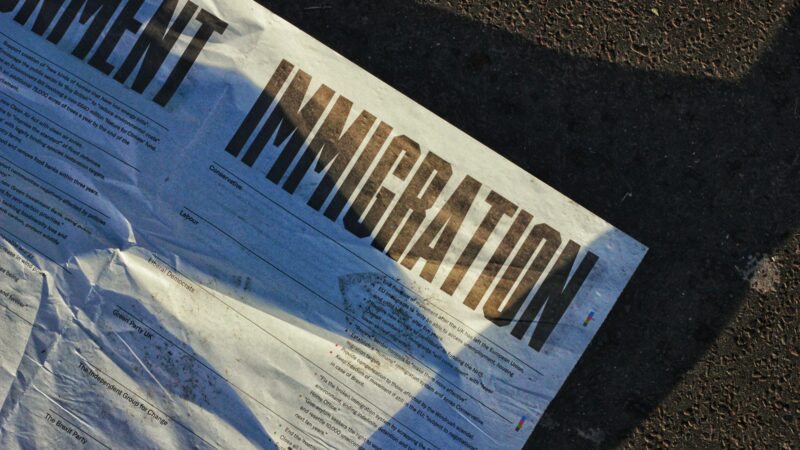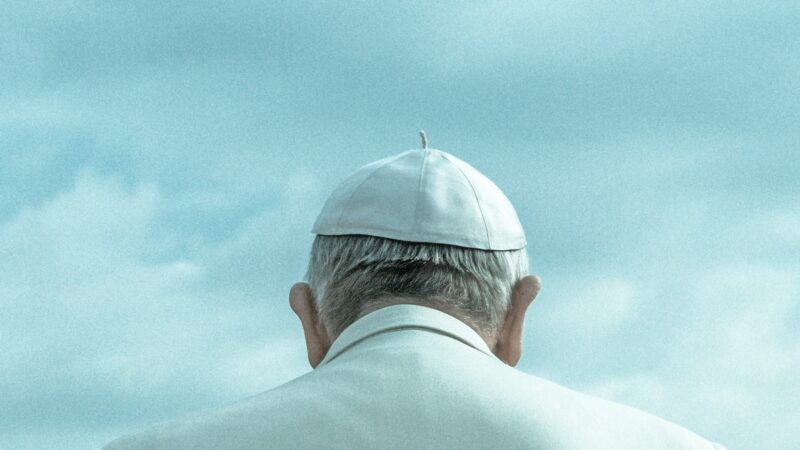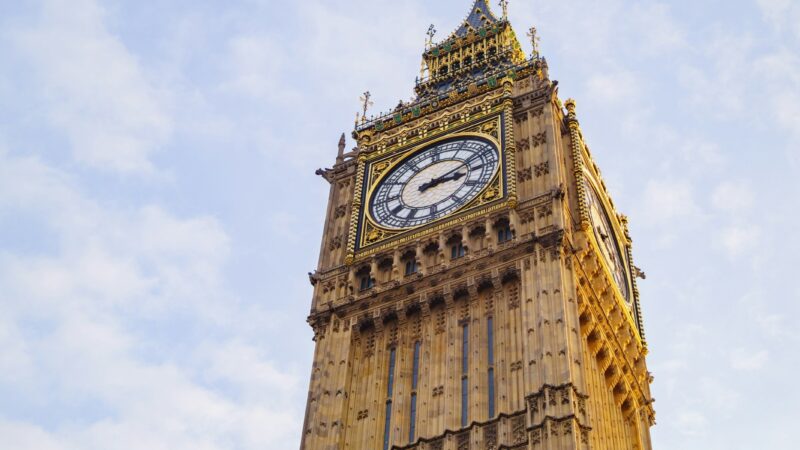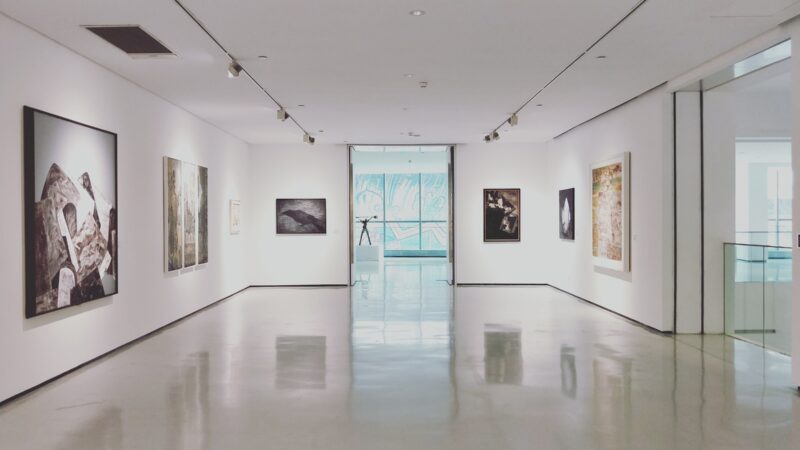Open Borders Rely on Political Irrationality
All too often, open-border policy stems from the fact that politics is determined by a class of people with deep-seated illusions about the facts surrounding immigration. Sweden is an ideal example of this pattern. Of all the countries in Europe, Sweden is especially notorious for having welcomed large numbers of refugees it could not properly integrate. In 2015, notes columnist James Traub, the country absorbed 163,000 of them. It has not gone well. Skyrocketing crime rates, mass unemployment among immigrants, and heavy strain on the welfare state have made Swedes weary of incoming foreigners. As a result, writes Traub, even Sweden’s Social Democrats have embraced ‘harsh language’ which used to be monopolised by ‘far-right nativists.’
This year’s November issue of the academic journal Kyklos includes the article Misrepresentation and migration, which explores the causes of that initial Swedish openness to migrants. Authors Anders Kärnä and Patrik Öhberg note that the extreme permissiveness with which migrants were let into the country ran radically counter to the will of the Swedish electorate. Voters’ dissatisfaction brought a right-wing government to power in 2022 and fueled the rise of the hard-right Sweden Democrats. Backlash was so strong that in 2015 the country’s prime minister was forced to make a U-turn and advocate for tougher restrictions after pushing for open borders earlier that year.
So why did the political class initially defy popular opinion to welcome hundreds of thousands of foreigners? Kärnä and Öhberg argue that Swedish politicians held far different views on the subject than their constituents. Polling coducted over the years shows that in every major party other than the Sweden Democrats, politicians were significantly less likely than their constituents to favour accepting fewer refugees until 2018. The authors conclude that pushback from the voting public, including through the emergence of the Sweden Democrats as a political competitor, eventually drove elected officials in other parties to revise their positions. Nevertheless, politicians from two of the three left-wing parties continued to be somewhat more pro-refugee than their constituents in 2018, the last year for which numbers are provided.
Contrary to what one might assume, the disagreement between politicians and voters did not occur because the politicians were better informed than the common people. On the contrary, they were deeply mistaken about the effects of their policies. The authors cite survey data from 2015 and 2017, showing that most Swedish politicians thought the economic impact of accepting refugees was ‘positive in the long run.’ However, they demonstrate that this belief is contradicted by all available peer-reviewed journal articles and by all the expert analyses of the issue which have appeared in official reports by the Swedish government. The existing studies indicated, and still indicate, that refugees are harmful rather than beneficial to Swedish economic performance. In other words, the idea that refugees were good for the economy was a piety which the political class held against all evidence.
Sweden’s experience is not unique. The immigration debate in the United States has also been marked by false ideas which politicians continue to hold despite overwhelming evidence against them. As Steven Camarota of the Center for Immigration Studies has observed, the notion that immigration can remedy ‘the aging of American society’ continues to be unquestioningly advanced by advocates of open borders even though it is blatantly inconsistent with the facts. The increasing average age of immigrants, their decreasing fertility rates, and the sheer size of the influx which would be required to offset American demographic woes make such a project impracticable.
Kärnä and Öhberg’s paper considers the irrationality of unfettered immigration only from an economic standpoint, but it is harmful in other ways as well. In addition to economic consequences, accepting countless immigrants whose values are incompatible with those of the host society creates sociopolitical problems with no obvious solution.
One such issue is organised crime. The Financial Times reports that, relative to population size, Sweden suffers from the third-highest rate of gun deaths of any EU country. A major cause of this epidemic is ‘[w]ell-established criminal gangs’ which are ‘largely run by second-generation immigrants.’ Sweden’s prime minister has identified ‘irresponsible immigration policy and failed integration’ as the root of the epidemic. Meanwhile, as France 24 details, the Swedish government is currently considering options which would let it deport ‘asylum-seekers and immigrants for substance abuse, association with criminal groups or statements threatening Swedish values.’
The political repercussions of large-scale immigration are also severe, and the presence of people who do not share Western values presents a serious threat. For instance, Sweden’s left-wing parties have dithered in their condemnation of Hamas’s terrorist attack against Israel. ‘If you assume,’ explains journalist Richard Orange, ‘that the 200,000, or perhaps even as many as 250,000, Arabic speakers [in Sweden] are broadly pro-Palestinian, that’s an important voter base.’
Dominik Tarczyński, a Member of the European Parliament from Poland, eloquently addressed the sociopolitical implications of immigration in a September speech. He pointed out that despite receiving no large-scale immigration, Poland was prospering economically, and said the Polish people did not want more migrants. ‘You know why? Because there are zero terrorist attacks in Poland,’ he explained, citing EU statistics.
Europol’s data on terrorism do indeed bear out Tarczyński’s claim. The agency’s Terrorism Situation and Trend Report for 2023 provides a map of the EU showing how many terrorist attacks and ‘arrests on suspicion of terrorism’ each country experienced in 2022. Poland was among the handful of states where none of either occurred. France was arguably the country most affected, with six attacks and 109 arrests, though Italy suffered twelve attacks and carried out 45 arrests. Notably, jihadist terrorism prompted far more arrests than any other kind of terrorism from 2020 to 2022, although leftist and anarchist terrorism accounted for a few more attacks – 44 versus 30. Sweden experienced an attack during this period. Poland did not.
The migrants’ cultural background is the key issue, more so than immigration itself. On another occasion, Tarczyński told leftist televison host Cathy Newman: ‘We took over two million Ukrainians, who are working, who are peaceful in Poland. We will not receive even one Muslim.’ This, he emphasized, was the will of the Polish electorate. If Tarczyński is representative – and he is – then Poland’s immigration policy is based on a realistic understanding of the effects of mass migration as well as on respect for the will of the people. As Kärnä and Öhberg show, both of these considerations failed to inform Swedish immigration policy for most of the 2000s and 2010s, and it is dubious whether they have enough of an impact even today.
Tarczyński’s motto is ‘Be like Poland.’ Swedish politicians should take that advice to heart. To judge by experience, however, it will fall to Sweden’s voters to make them do so.









On Freedom of Navigation
Amidst the present difficulties in transmitting knowledge from one generation of educated people to the next, one principle that seems to have been mislaid is freedom of navigation. This has been laid bare by commentary on the recent Anglo-American operations in the Red Sea against the Houthis. Hence, it is worth offering a short explanation of freedom of navigation: what it is, its history prior to its modern codified universalisation and its defences up to the present.
Before its codification by the United Nations, freedom of navigation was part of customary international law, by its nature quite distinct from how modern international law is established and enforced. It originated in the Dutch Republic’s rule of mare liberum (free seas), coined by influential Dutch jurist Hugo Grotius in 1609, which considered neutral ships and their goods inviolable on the high seas. Naturally, this could benefit trading powers like the Dutch, but came into competition with competing Consolato customs. These were named after the Aragonese Consulate of the Sea, both a body to administer maritime law and a collection of maritime ordinances codified since at least 1494. These rules determined neutral ships could be attacked in times of war to seize enemy goods, but even on enemy ships neutral goods could not be taken. By the seventeenth century, Consolato was often paired with the concept of mare clausum (closed sea), coined in 1635 by English jurist John Selden, which held that areas of the sea could be entirely closed off from foreign shipping. Both principles were supported by the major naval powers of the day, including England, France and Spain.
As was the case with a number of pivotal concepts in European history, mare liberum was often fought for over the course of the seventeenth and eighteenth centuries, first by the Dutch alone but later by the nascent American Republic and the Russian Empire as a right of neutral states. The cause of freedom of navigation was greatly assisted during this period by the Dutch victory in the Eighty Years’ War against Spain, as well as the later decline of Spain and Portugal as dominant powers who had attempted to apply mare clausum to the New World’s seas. Another conceptual innovation emerged to resolve some discrepancies between the rival customs in 1702, as Dutch jurist Cornelius van Bynkershoek formulated that maritime dominion corresponded with the distance coastal cannons could effectively protect it; the range of the most advanced cannon at the time was three nautical miles. Beyond the Dutch, naval powers still employed the Consolato principle into the nineteenth century against other countries, especially during major conflicts, but this could be superseded in treaties by freedom of navigation. Ultimately, this became the case for all European powers at the end of the Crimean War in the 1856 Declaration of Paris Respecting Maritime Law, which synthesised the two customs into a rule that enemy goods were covered by a neutral flag whilst neutral goods could not be seized on enemy ships. Arguably, this built upon the Congress of Vienna’s grant of freedom of navigation to key European rivers, which constituted multiple states’ new borders and economic arteries, at the end of the Napoleonic Wars in 1815. The exceptions to the rule outlined by the 1856 declaration were effective blockade and contraband, whereas privateering (in other words, state-sanctioned piracy) was confirmed to be abolished. As Europe proceeded to dominate the world in the nineteenth century, so too did the inviolability of neutral commercial shipping and their freedom to navigate the seas as their juridically innocent business permitted.
Of course, the growth of freedom of navigation did not result in the disappearance of piracy, nor pirate states. For instance, the United States, Sweden and Sicily fought wars against the Barbary corsairs in the early nineteenth century to ensure the freedom of their merchant ships from ransom and enslavement in the Mediterranean, despite only Sicily possessing an obvious interest in the region. In recent weeks, the Houthis have proven themselves to be another such pirate state through their rather indiscriminate attacks on commercial shipping in the Red Sea. In response, Britain and America (with support from several other countries) have attempted to neutralise this threat to freedom of navigation under Operation Prosperity Guardian. In theory, this should be the least controversial Middle Eastern intervention conducted during this century thus far, since the Houthis are plainly violating the neutrality of benign ships under neutral flags. At the time of writing, there is no hint from the intervening powers of the neoconservative adventurism which defined the wars in Iraq and Afghanistan, nor strong intentions to impose changes on Houthi internal affairs beyond the immediate issue at hand. In practice, the war in Israel has entirely toxified any discourse surrounding events in the Red Sea. Instead of realism, one witnesses what is allegedly another instalment of the clash of civilisations. Whatever the merits of Samuel Huntington’s thesis of contemporary world affairs, such hyperbolic reactions to events in the Red Sea overestimate their significance.
If America did not exist, it would be in India or China’s interest to assert freedom of navigation in the region due to its foundational importance to the global economy. Readers should bear in mind that the principle has only a tangential relationship to a nation’s trade policy. Although freedom of navigation is a precondition of free trade, it does not determine the extent to which a ship’s goods are impeded from accessing markets at port, only that the international movement of goods can occur without undue harassment. Perhaps a handful of countries at most could be expected to subsist today to a reasonable standard without substantial trade, an interesting notion in itself but beyond the scope of this article. Likewise, most, if not all, nations lack the naval strength to forcibly guarantee the security of their commercial shipping worldwide, given the sheer volume and frequency of post-containerisation international trade. This means freedom of navigation ought not only to be remembered by readers, but as a matter of historical preference and present necessity defended into the future.
Photo Credit.